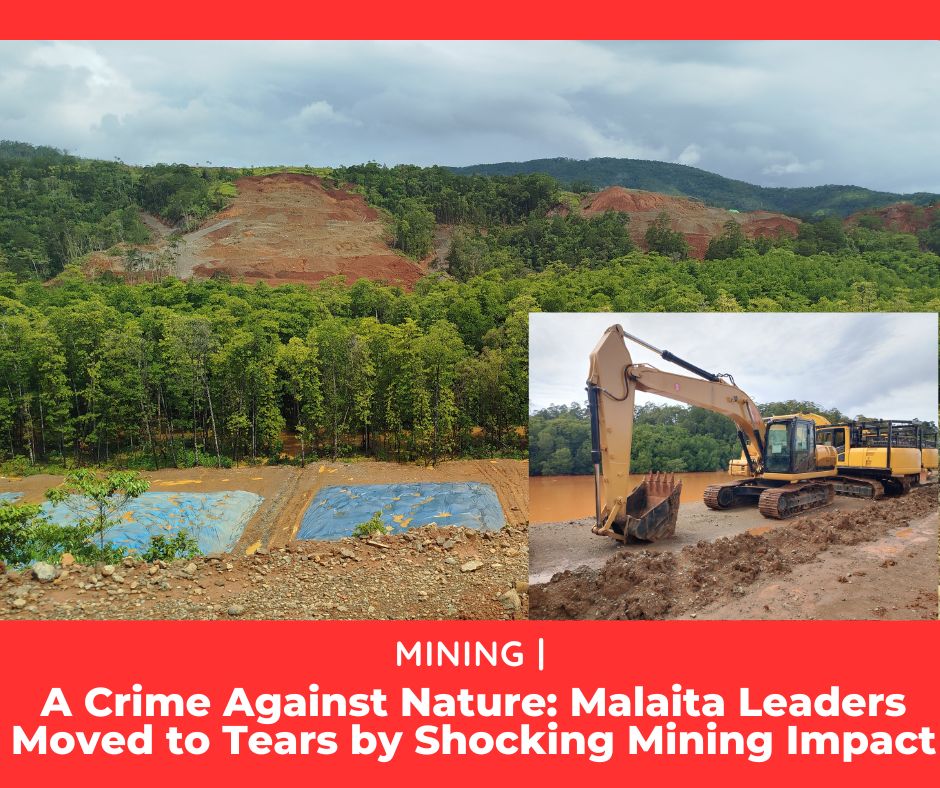
by Ednal Palmer In Kiu, West Are’Are
Church and community leaders around Kiu, Malaita, were brought to tears after listening to a powerful presentation by two young advocates from Isabel Province detailing the devastating effects of mining on their environment and communities.
The presentation, delivered by members of the Japuana Youth Advocacy Association, was part of a workshop on nature crime organized by the Solomon Islands Rangers Association (SIRA).
The workshop aims to build community resistance against environmental destruction and promote stewardship of natural resources.
Graphic images of ecological destruction—mud-choked rivers, deforested hills, and oil-slicked coastlines—moved participants emotionally, sparking impassioned responses.

Young advocates from Isabel Province detailing the devastating effects of mining on their environment and communities to the Kiu People in Malaita Province.
“It is unbelievably inhumane—truly a serious crime against nature,” said David Rikihanua, a Pentecostal pastor in Kiu, struggling to hold back tears.
“We must ensure we hand over the environment in its purest form to our children,”Rikihanua added.
Former logging licensee and respected village elder Festus Irumai echoed the urgency.
“I was a logging licensee. I now realise that these activities are harmful to our environment,” he admitted.
“Such devastation can never be undone—it must be prevented.”
The Japuana youths highlighted the irreversible damage caused by nickel and alluvial mining in Isabel Province.
Communities have suffered polluted water sources, declining marine life, and loss of arable land.
A recent investigation by the Isabel Provincial Health Services into Pacific Nickel’s Kolosori operations found poor sediment control and significant pollution.
Oil and sediment runoff were traced from mining sites to coastal waters, raising alarm among environmental authorities and national leaders.
The call for action resonated strongly in Malaita, as participants pledged solidarity in defending their land, forests, and seas.
The training program is funded by the Resilience Fund in support of the Global Initiative Against Transnational Organized Crime (GI-TOC) and implemented by SIRA—a non-governmental organization dedicated to empowering rangers and supporting community-based conservation throughout the Solomon Islands.

